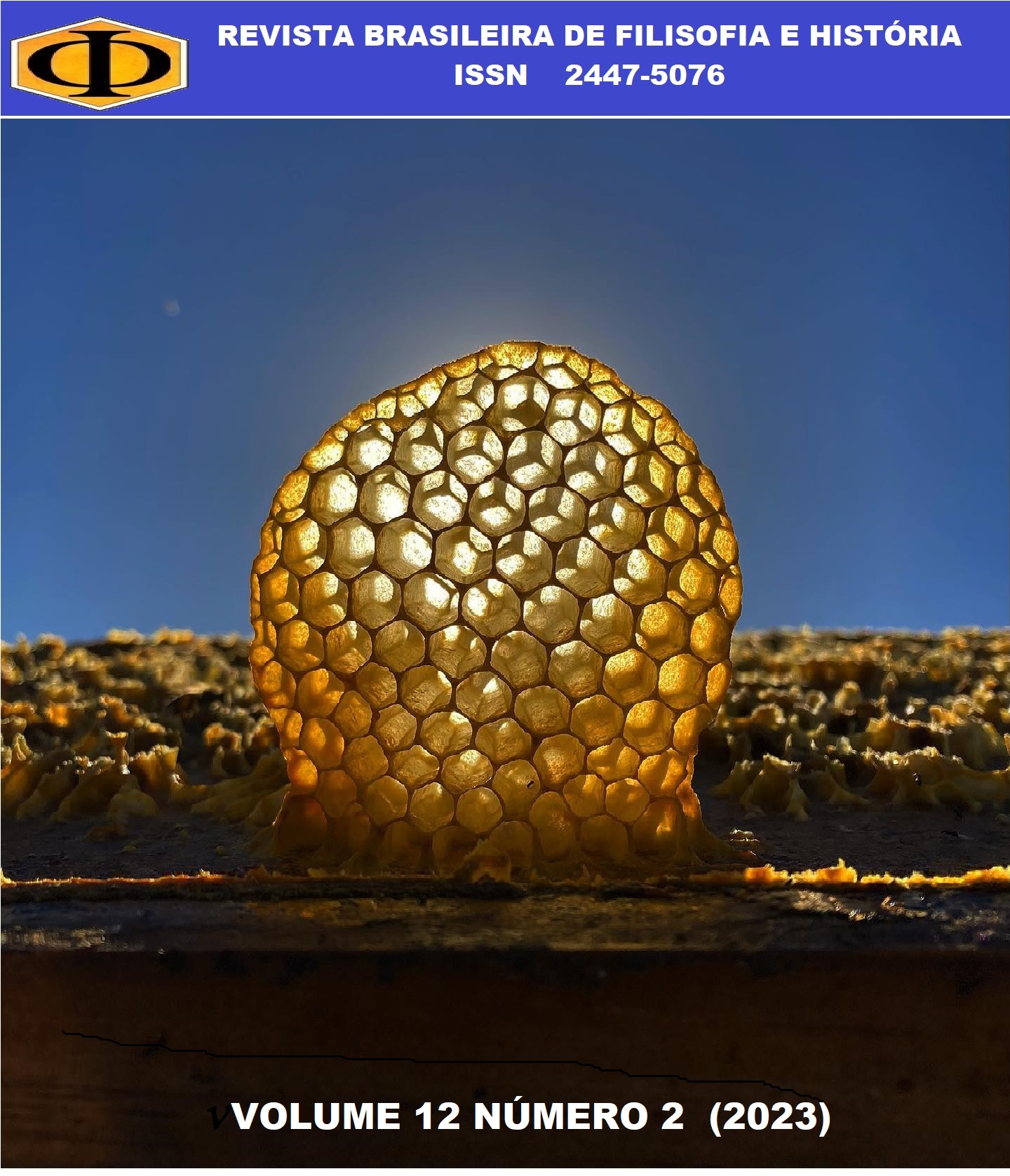Artificial intelligence in criminal law and its impact on guarantees and fundamental rights
Abstract
The present work aimed to address the legality of the maintenance of arrests in flagrante delicto for default in the payment of bail arbitrated by the judicial authority. In this sense, we addressed the principles of such a theme, since the digression from the analysis of poverty and criminal procedure, the freedom of the individual, the principles violated with such a case of maintenance of the prison, until the focus of the proposed theme. As methodology, this article is characterized as explanatory research, whose method and approach is deductive and qualitative, respectively. In the case of the research technique, bibliographical research was used in order to deepen the knowledge on the specified topic. Finally, we can see the great need for jurisprudential maintenance about the arrest in flagrante of hyposufficiency for default of bail, so that the criminal procedural law does not present, even if in a veiled way, this discriminatory character between privileged prisoners, economically wealthy and prisoners in precarious condition of hyposufficiency.
References
BRASIL. Conselho Nacional de Justiça. Resolução nº 332, de 21 de agosto de 2020. Disponível em: https://www.anoreg.org.br/site/wpcontent/uploads/2020/08/Resoluc%CC%A7a%CC%83o 332-CNJ. pdf. Acesso em: 7 jan. 2022.
CARDOSO, B. Estado, tecnologias de segurança e normatividade neoliberal. In: CARDOSO, B. et al. (Org.). Tecnopolíticas da vigilância: perspectivas da margem. São Paulo: Boitempo, 2018. p. 91-105.
FENELON, F. Responsabilização penal e sistema de inteligência artificial: um tema controverso. 2019. Canal Ciências Criminais. Disponível em: http://canalcienciascriminais. com.br/ responsabilizacao-penal-e-sistemas-deinteligencia-artificial/. Acesso em: 2 set. 2021.
FREITAS J.; FREITAS, T. B. Direito e inteligência artificial: em defesa do Humano. Belo Horizonte: Fórum, 2020.
JARDIM, T. M. Resolução nº 332/CNJ: uso de inteligência artificial no Poder Judiciário. 2021. Disponível em: https://www.youtube. com/watch?v=QVPx-p2Bpao. Acesso em: 8 dez. 2021.
LÉVY, P. Ciberdemocracia. Lisboa-Portugal: Stória, 2003.
LUGER, G. F. Inteligência artificial. 4. ed. Porto Alegre: Bookman, 2004.
MARTÍN, N. B. A atuação judicial automatizada em exame: juiz robô versus juiz humano. In: WERNECK, D. N. I.; LUCON, P. H. S. (Org.). Direito Processual e tecnologia: os impactos da virada tecnológica no âmbito mundial. Salvador: JusPodivm, 2022. p. 535- 564.
MAZZUOLI, V. O. Curso de direito internacional público. 12. ed. São Paulo: Forense, 2019.
MORAIS, J. L. B. Eficientismo, novas tecnologias e o (fim do) consenso. Isto pode parecer (ser) um manifesto. In: NUNES, D.; LUCON, P. H. S.; WERNECK, I. (Org.). Direito Processual e tecnologia: os impactos da virada tecnológica no âmbito mundial. Salvador: JusPodivm, 2022. p. 285-306.
NASCIMENTO, V. R. Direitos fundamentais da personalidade na era da sociedade da informação: transversalidade da tutela à privacidade. Revista RIL, Brasília, ano 54, n. 213, p. 265-288, jan./ mar. 2017.
NUNES, D. M. H. Manual da justiça digital. Salvador: JusPodivm, 2022.
PEIXOTO, F. H. Direito e inteligência artificial. Brasília: DRIA, 2020. (Coleção Inteligência Artificial e Jurisdição, v. 2). Disponível em: www.dria.unb.br. Acesso em: 18 nov. 2021.
PEIXOTO, F. H. Direito e inteligência artificial: referenciais básicos: com comentários à resolução CNJ 332/2020. Brasília: Ed. do Autor, 2020. (livro eletrônico).
PEIXOTO, F. H. Inteligência artificial e Direito: convergência ética e estratégica. Curitiba: Alteridade, 2020. v. 5.
PÉREZ LUÑO, A. E. Que significa juzgar? Doxa: Cuadernos de Filosofia del Derecho, n. 32, p. 28-37, 2009. Disponível em: http://data.cervantesvirtual.com/manifestion/ 285106. Acesso em: 20 out. 2021.
RODOTÁ, S. A vida na sociedade da vigilância: a privacidade hoje. Rio de Janeiro: Renovar, 2008.
ROSA, A. M.; BOEING, D. H. A. Ensinando um robô a julgar. Rio de Janeiro: Emais, 2020.
SARLET, I. W. As dimensões da dignidade da pessoa humana. Revista Brasileira de Direito Constitucional – RBDC, [s. l.], n. 9, p. 361-388, jan./jun.
VÉLIZ, C. Privacidade é poder: porque e como você deveria retomar o controle de seus dados. Tradução de Samuel Oliveira. São Paulo: Contracorrente, 2021.
VIANA, A. A. S. Juiz-robô e a decisão algorítmica: a inteligência na aplicação dos precedentes. In: FONSECA, I. et al. Inteligência artificial e processo. Belo Horizonte: D’Placido, 2019. p. 37-71.
Downloads
Published
How to Cite
Issue
Section
License
Esta é uma revista de acesso livre, onde, utiliza o termo de cessão seguindo a lei nº 9.610/1998, que altera, atualiza e consolida a legislação sobre direitos autorais no Brasil.
Autores que publicam na Revista Brasileira de Filosofia e História (RBFH) concordam com os seguintes termos:
O(s) autor(es) doravante designado(s) CEDENTE, por meio desta, cede e transfere, de forma gratuita, a propriedade dos direitos autorais relativos à OBRA à Revista Brasileira de Filosofia e História (RBFH), representada pelo Grupo Verde de Agroecologia e Abelhas (GVAA), estabelecida na Rua João Pereira de Mendonça , 90 Bairro Petropolis em Pombal - PB doravante designada CESSIONÁRIA, nas condições descritas a seguir: 1. O CEDENTE declara que é (são) autor(es) e titular(es) da propriedade dos direitos autorais da OBRA submetida. 2. O CEDENTE declara que a OBRA não infringe direitos autorais e/ou outros direitos de propriedade de terceiros, que a divulgação de imagens (caso as mesmas existam) foi autorizada e que assume integral responsabilidade moral e/ou patrimonial, pelo seu conteúdo, perante terceiros. O CEDENTE cede e transfere todos os direitos autorais relativos à OBRA à CESSIONÁRIA, especialmente os direitos de edição, de publicação, de tradução para outro idioma e de reprodução por qualquer processo ou técnica através da assinatura deste termo impresso que deverá ser submetido via correios ao endereço informado no início deste documento. A CESSIONÁRIA passa a ser proprietária exclusiva dos direitos referentes à OBRA, sendo vedada qualquer reprodução, total ou parcial, em qualquer outro meio de divulgação, impresso ou eletrônico, sem que haja prévia autorização escrita por parte da CESSIONÁRIA.












